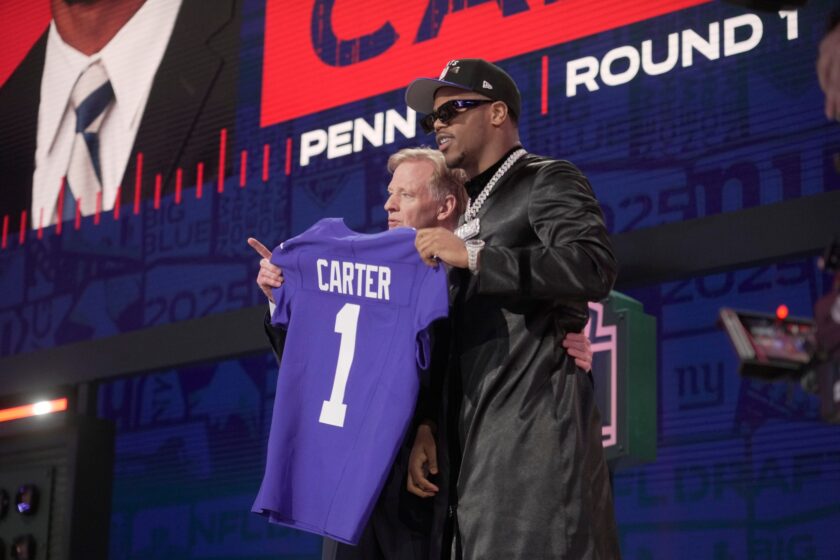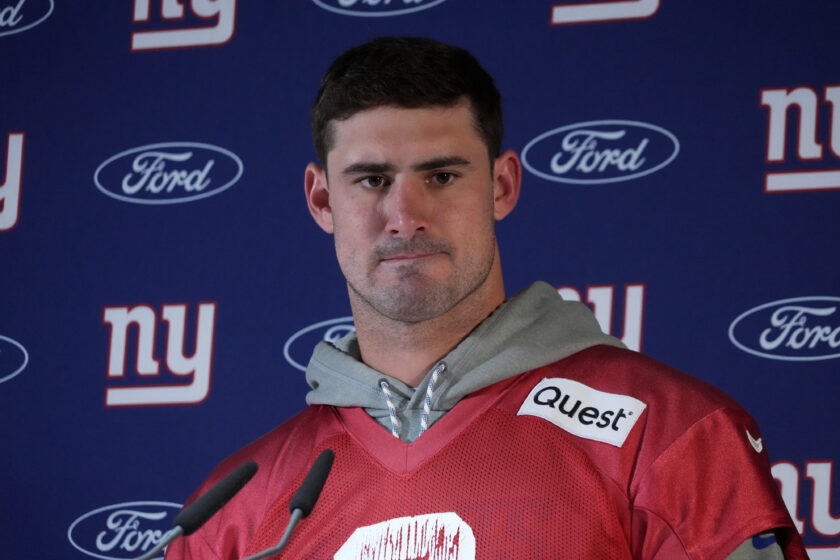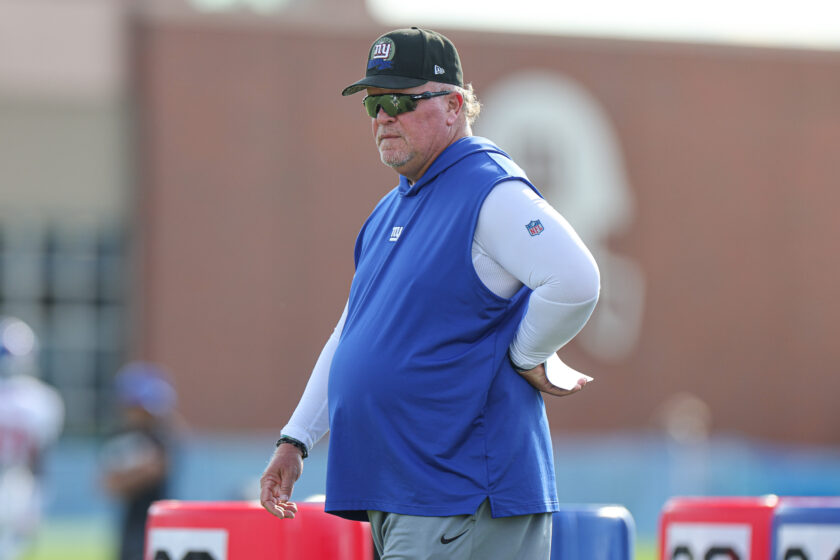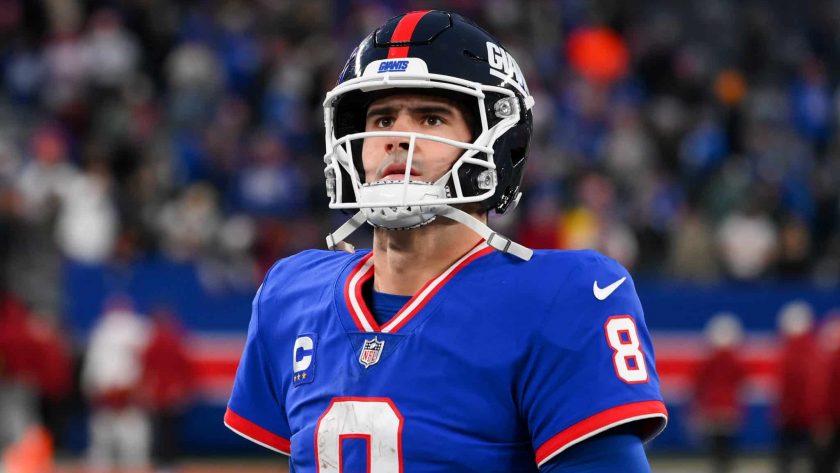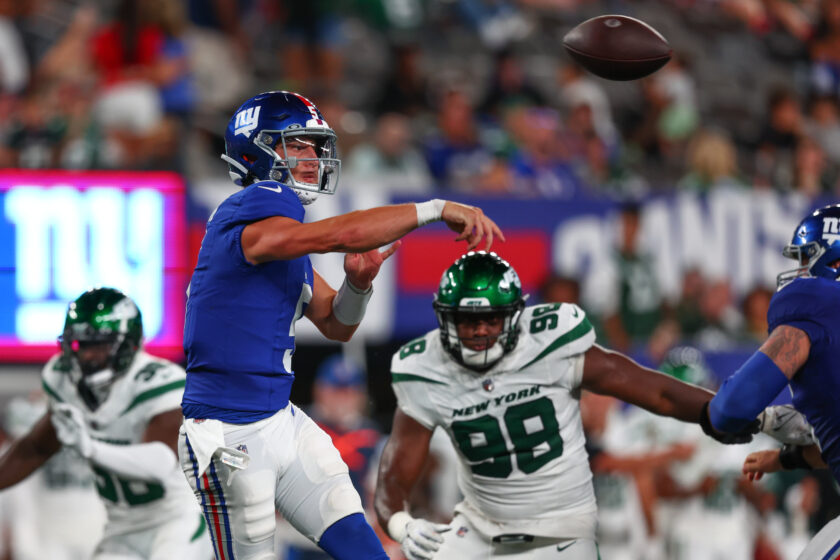Deciphering the Giants’ recent cornerback additions
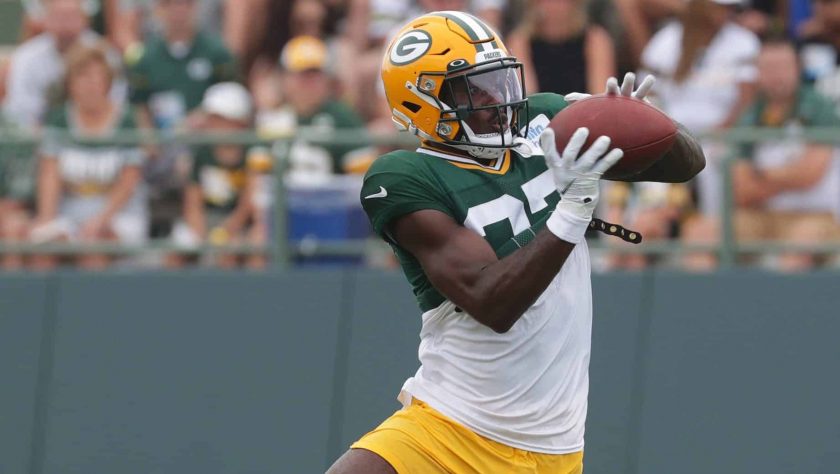
The Giants recently acquired a pair of cornerbacks. Why them? And why now?
[sc name=”ryan-honey-banner” ][/sc]It’s mid-August, ladies and gentlemen.
Roster shuffling is alive and well in the NFL, and the New York Giants have been no exception to that concept as of late.
Over the past few days, the Giants traded a 2023 sixth-rounder to Houston for Keion Crossen before shipping Isaac Yiadom to Green Bay for 2018 second-rounder Josh Jackson on Tuesday.
Why are the Giants focusing on the defensive backfield as much as they are? What roles could Crossen and Jackson assume?
The (right) depth is crucial
Every team in this league needs significant depth in the defensive backfield — it’s a passing league and reliable bodies are required.
And prior to these moves, it was unclear whether the Giants employed an abundance of that reliable (and available) depth.
Third-round corner Aaron Robinson is still on the Physically Unable to Perform (PUP) list after undergoing core muscle surgery and it’s unclear when he’ll be ready to participate in a live game setting.
Madre Harper, on the other hand, isn’t overly talented, and while the organization seems to have a soft spot for Sam Beal, the 2018 supplemental draft pick has played just six games since entering the league.
There might be a lack of confidence in the options past Pro Bowler James Bradberry and free-agent pickup Adoree’ Jackson — the organization may have realized this following last Saturday’s preseason loss to the Jets.
But why trade for two corners instead of just one?
Well, the more the merrier in the secondary, especially during this time of year when you’re attempting to decipher who fits in your system and who doesn’t. It’s also possible the Giants don’t see much of a future with various defensive backs they currently employ and are putting alternative plans in place.
Why Keion Crossen?
Familiarity is important in this league and so is the ability to be multi-faceted.
Keion Crossen will not only be an option in the secondary but also (probably moreso) on special teams.
Last year for Houston, the 2018 seventh-rounder out of Western Carolina was on the field for 28% of defensive snaps (with four starts) and 59% of special teams snaps, proving he can be trusted to assume a number of different roles.
The talent is present as well — Keion recorded 46 combined tackles (33 solo) in 2020 and, from a coverage standpoint, allowed opposing quarterbacks to complete 57.1% of passes for a 91.6 passer rating when targeting him.
As for the familiarity, Crossen possesses experience playing for Joe Judge, who was the special teams coordinator for New England when Keion played there in 2018. Crossen earned 25% of the Patriots’ special teams reps that season.
Judge’s previous time spent coaching Crossen potentially influenced the decision to trade for him.
Why Josh Jackson?
Like with Crossen, familiarity within the organization is present with Josh Jackson. However, so is notable upside.
Although Jackson has struggled and only started 15 games in three years for Green Bay, he’s still a former second-round pick entering his age-25 season — the potential can still be unlocked.
It wasn’t that long ago when Jackson was a 2017 first-team All-Big Ten selection and a unanimous All-American with Iowa in a conference in which he was going up against pro-caliber talent (Penn State, Michigan, Ohio State, and Wisconsin were just a few of the Hawkeyes’ opponents that year).
He hasn’t exactly transferred that collegiate-level talent to the NFL, but a change of scenery and scheme could assist with his development. And if there’s anyone who knows how to get the most out of his players, it’s Patrick Graham.
Speaking of the defensive coordinator, Graham was on the Packers coaching staff (as the linebackers coach and run game coordinator) during Jackson’s 2018 rookie campaign. Was Graham’s experience with Jackson a reason for the Giants trading for him this week? Did Graham possibly recommend the move?
Crossen/Jackson’s roles
Crossen won’t be fighting for a starting job in the defensive backfield (at least we don’t think he’ll be). He’ll be there for depth and reinforcement purposes should someone succumb to injury, so expect him to be a special teams weapon for the majority of his time with New York.
Crossen may be the team’s new Nate Ebner-type player. Ebner has mainly been a special teams ace his entire career despite being listed as a safety and participated on 81% of the Giants’ special teams snaps last year.
Nate is recovering from offseason surgery and wasn’t with Big Blue this past spring due to his plans to compete for a spot on the USA Olympic Rugby team. Crossen’s acquisition could mean Ebner isn’t returning to East Rutherford, so anticipate a ton of special teams responsibility for Keion.
As for Jackson, he won’t be competing for a starting role on the outside — it’s notably obvious those two spots will be saved for James Bradberry and Adoree’ Jackson given the talent (and contracts) of either.
However, could Josh find success in the slot?
Second-year man Darnay Holmes (five starts last season) is competing for the role and rookie Rodarius Williams saw time in the slot against the Jets last Saturday. Neither are locks for the starting job though.
Jackson’s potential (which wasn’t properly unlocked by Green Bay) could lead to him giving either of the aforementioned competitors a run for their money when it comes to this specific role.
- DRAFTKINGS SPORTSBOOK
BET $5 & GET $150 IN BONUS BETS INSTANTLY!
- FANDUEL SPORTSBOOK
BET $5, GET $150 BONUS!
- CAESARS SPORTSBOOK
$1,000 BET ON CAESARS!
- BETMGM SPORTSBOOK
BET $5, GET $158 BONUS!
- BET365
GET $150 BONUS OR $2,000 FIRST-BET SAFETY NET!






